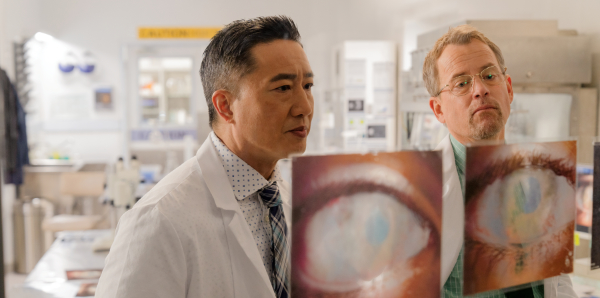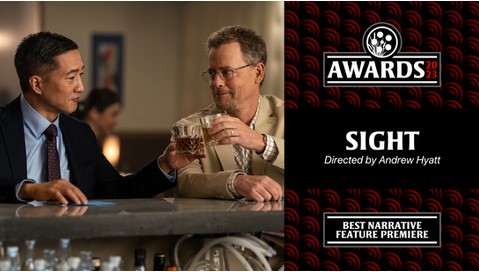By Glenn Kenny, May 23, 2024. The New York Times
Based on the real life of the pioneering ophthalmologist Ming Wang, this movie follows the character’s struggle to see inside himself.

Terry Chen, left, and Greg Kinnear in “Sight,” directed by Andrew Hyatt.
Ming Wang, the real-life physician whose biography is the basis for this fictional feature, is a Nashville-based ophthalmologist whose degree in laser physics has presumably been a boon in his work restoring sight to visually impaired patients, many of whom are children.
As is the custom with inspirational medical movies, however, the new film “Sight,” directed by Andrew Hyatt, leans hard into uplift — it provides only the narrative-necessary minimum of the science. Wang’s achievement in developing innovative technology is central to one of the stories here, yes. But the dominating narrative is one of personal growth.
Weaving several decades’ worth of flashbacks into its action, otherwise set in 2006, the movie shows Wang’s traumatic childhood in Hangzhou, China, where he and his friend Lili are terrorized by the Cultural Revolution’s Red Guard. He wants to be a doctor like his father, who tells him his best “chance” in life is to “become a musician.” You don’t hear that too often.
Brilliant at school, Wang is able to make his way to M.I.T., but even in the elite educational environments he passes through, he’s discouraged from pursuing his dreams of becoming a physician. These trials leave Wang with a defensive ego and a tendency to shut out others emotionally. He’s forced to deal with failure and to learn to trust.





